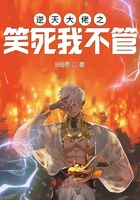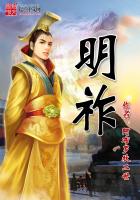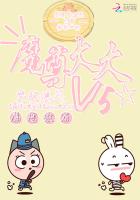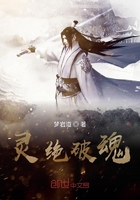As he sat there waiting for Hughie, he heard voices.
"Horo!" he shouted.
"Where are you? Is that you, Don?" It was his father's voice.
"Yes, here we are."
"Is Hughie there?" inquired another voice.
"Losh me! that's the minister," said Don. "Yes, all right," he cried aloud, as up came Long John Cameron and the minister, with Fusie and a stranger bringing up the rear.
"Fine work, this. You're fine fellows, indeed," cried Long John, "frightening people in this way.""Where is Hughie?" said the minister, sternly.
Hughie came from behind the brush, hurriedly wiping his eyes.
"Here, father," he said.
"And what are you doing here at this hour of the night, pray?" said the minister, angrily, turning toward him.
"I couldn't get home very well," replied Hughie.
"And why not, pray? Don't begin any excuses with me, sir."Nothing annoyed the minister as an attempt to excuse ill-doing.
"I guess he would have been glad enough to have got home half an hour ago, sir," broke in Don, laughing. "Look there." He pointed to the bear lying dead, with Nigger standing over him.
"The Lord save us!" said Long John Cameron, himself the greatest among the hunters of the county. "What do you say? And how did you get him? Jee-ru-piter! he's a grand one."The old man, the minister, and Don walked about the bear in admiring procession.
"Yon's a terrible gash," said Long John, pointing to a gaping wound in the breast. "Was that your Snider, Don?""Not a bit of it, father. The bear's Hughie's. He killed him himself.""Losh me! And you don't tell me! And how did you manage that, Hughie?""He chased me up that tree, and I guess would have got me only for Fido."The minister gasped.
"Got you? Was he as near as that?"
"He wasn't three feet away," said Hughie, and with that he proceeded to give, in his most graphic style, a description of his great fight with the bear.
"When I heard the first shot," said Don, "I was away across the swamp. I tell you I tore back here, and when I came, what did Isee but Hughie and Mr. Bear both sitting down and looking coolly at each other a few yards apart. And then Nigger downed him and I put a bullet into his heart." Don was greatly delighted, and extremely proud of Hughie's achievement.
"And how did you know about it?" asked Don of his father.
"It was the minister here came after me.""Yes," said the minister, "it was Fusie told me you had gone off on a bear hunt, and so I went along to the Cameron's with Mr. Craven here, to see if you had got home."Meantime, Mr. Craven had been looking Hughie over.
"Mighty plucky thing," he said. "Great nerve," and he lapsed into silence, while Fusie could not contain himself, but danced from one foot to the other with excited exclamations.
The minister had come out intending, as he said, "to teach that boy a lesson that he would remember," but as he listened to Hughie's story, his anger gave place to a great thankfulness.
"It was a great mercy, my boy," he said at length, when he was quite sure of his voice, "that you had Fido with you.""Yes, indeed, father," said Hughie. "It was Fido saved me.""It was the Lord's goodness," said the minister, solemnly.
"And a great mercy," said Long John, "that your lad kept his head and showed such courage. You have reason to be proud of him."The minister said nothing just then, but at home, when recounting the exploit to the mother, he could hardly contain his pride in his son.
"Never thought the boy would have a nerve like that, he's so excitable. I had rather he killed that bear than win a medal at the university."The mother sat silent through all the story, her cheek growing more and more pale, but not a word did she say until the tale was done, and then she said, "'Who delivereth thee from destruction.'""A little like David, mother, wasn't it?" said Hughie; but though there was a smile on his face, his manner and tone were earnest enough.
"Yes," said his mother, "a good deal like David, for it was the same God that delivered you both.""Rather hard to cut Fido out of his share of the glory," said Mr.
Craven, "not to speak of a cool head and a steady nerve."Mrs. Murray regarded him for a moment or two in silence, as if meditating an answer, but finally she only said, "We shall cut no one out of the glory due to him."At the supper-table the whole affair was discussed in all its bearings. In this discussion Hughie took little part, ****** light of his exploit, and giving most of the credit to Fido, and the mother wondered at the unusual reserve and gravity that had fallen upon her boy. Indeed, Hughie was wondering at himself. He had a strange new feeling in his heart. He had done a man's deed, and for the first time in his life he felt it unnecessary to glory in his deeds. He had come to a new experience, that great deeds need no voice to proclaim them. During the thrilling moments of that terrible hour he had entered the borderland of manhood, and the awe of that new world was now upon his spirit.
It was chiefly this new experience of his that was sobering him, but it helped him not a little to check his wonted boyish exuberance that at the table opposite him sat a strange young man, across whose dark, magnetic face there flitted, now and then, a lazy, cynical smile. Hughie feared that lazy smile, and he felt that it would shrivel into self-contempt any feeling of boastfulness.
The mother and Hughie said little to each other, waiting to be alone, and after Hughie had gone to his room his mother talked long with him, but when Mr. Craven, on his way to bed, heard the low, quiet tones of the mother's voice through the shut door, he knew it was not to Hughie she was speaking, and the smile upon his face lost a little of its cynicism.
Next day there was no smile when he stood with Hughie under the birch-tree, watching the lad hew flat one side, but gravely enough he took the paper on which Hughie had written, "Fido, Sept. 13th, 18--," saying as he did so, "I shall cut this for you. It is good to remember brave deeds."















